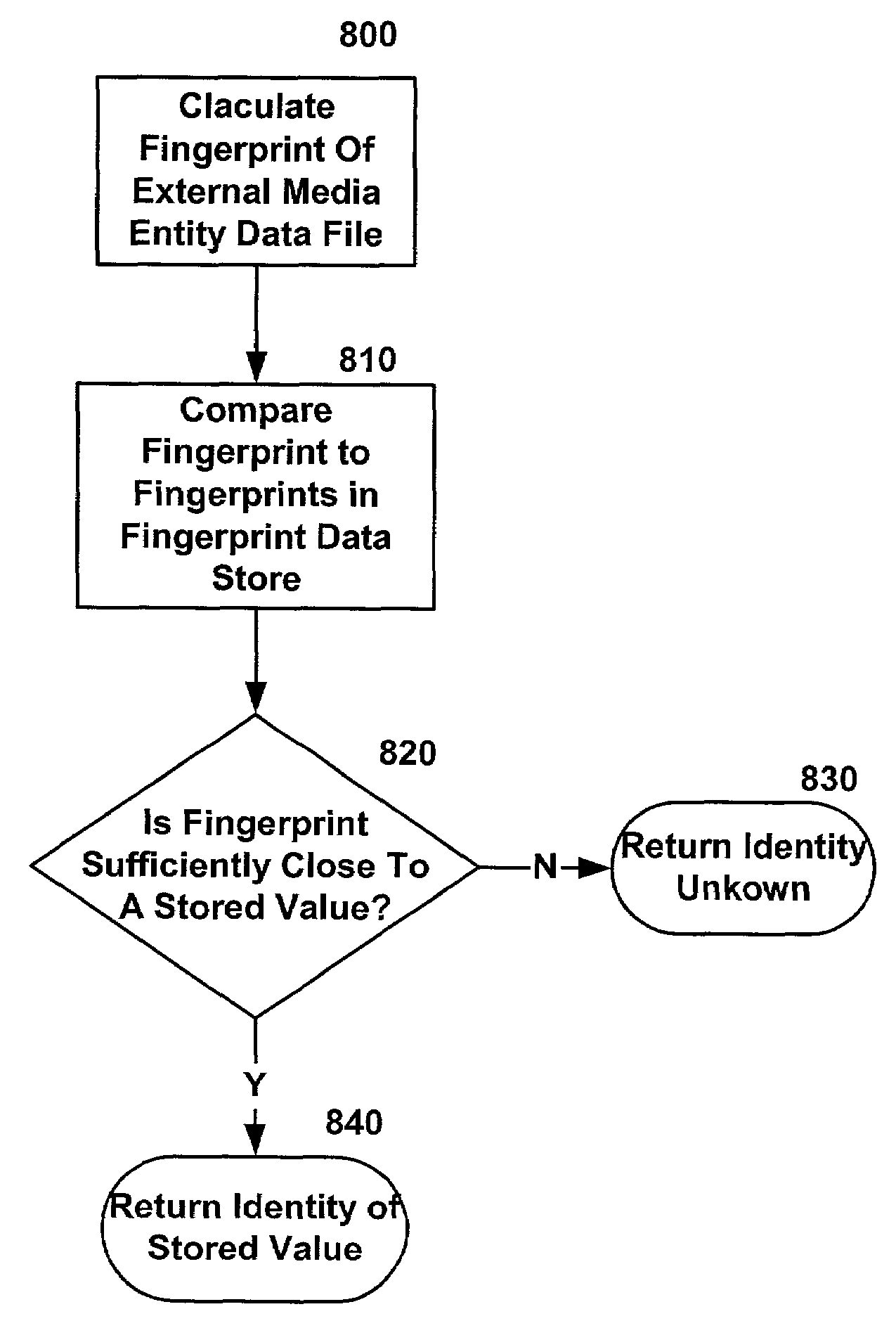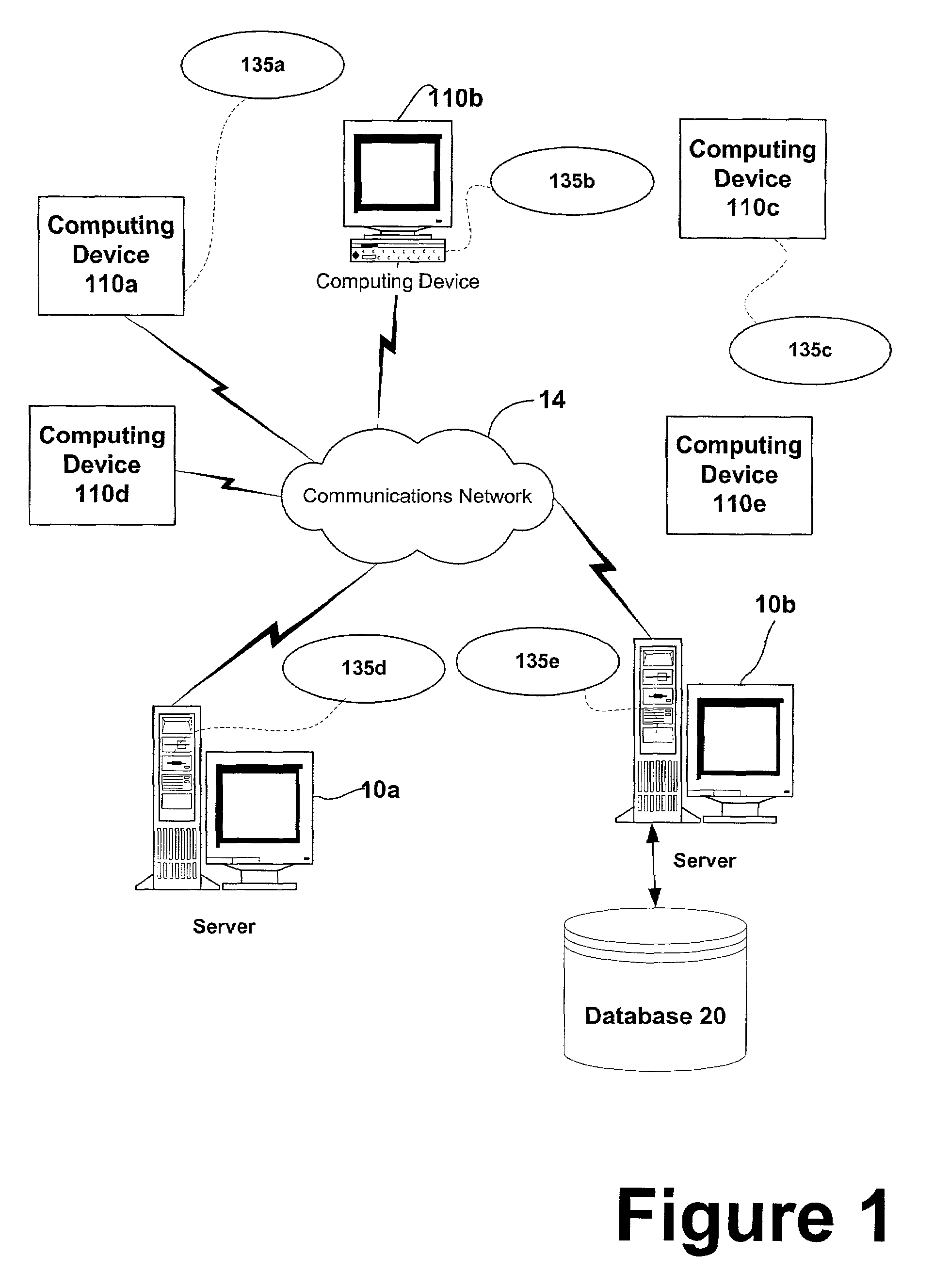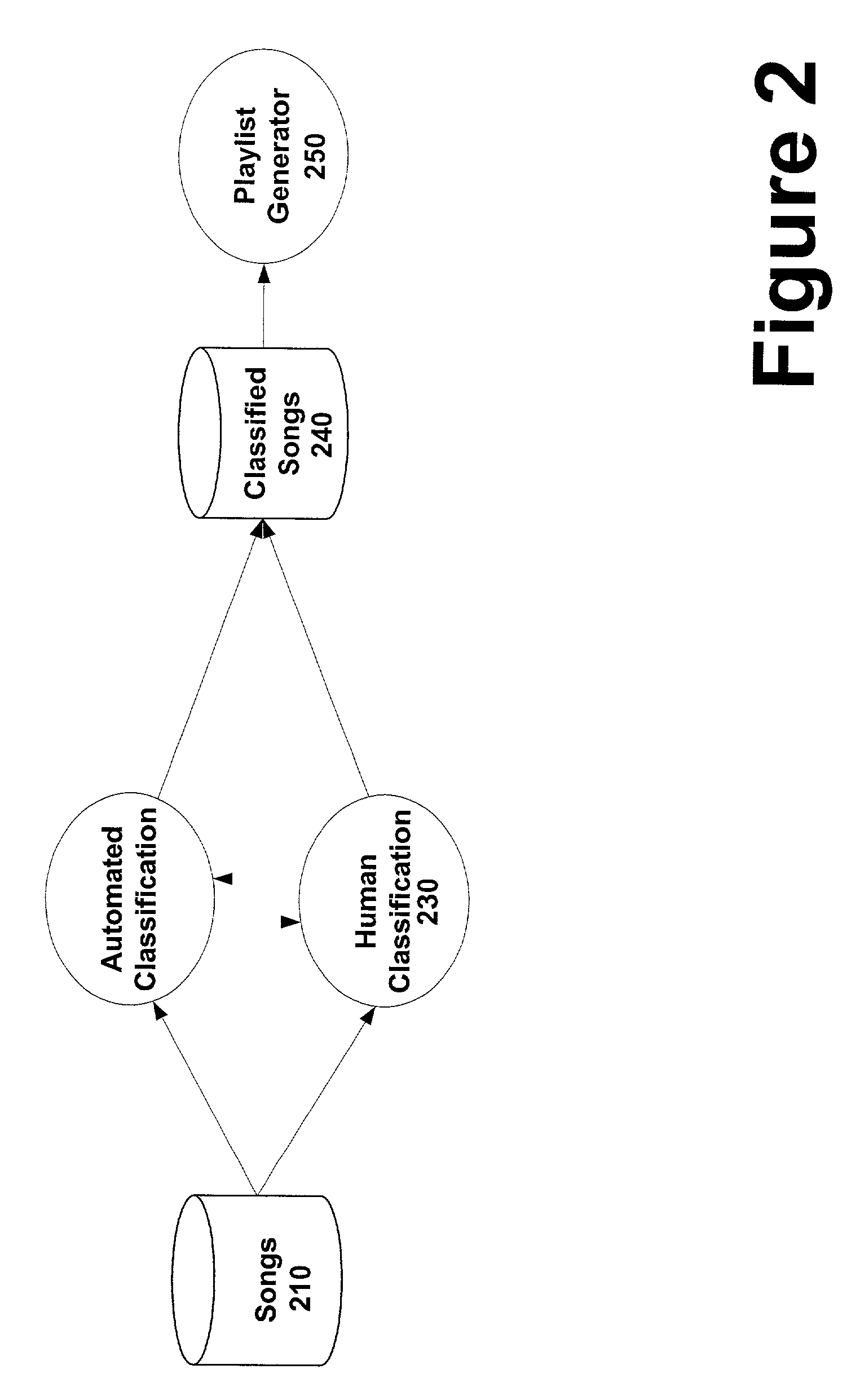System and method for audio fingerprinting
a fingerprinting system and fingerprinting technology, applied in the field of system and method for audio fingerprinting, can solve the problems of complex classification, no consistent, concise, agreed-upon system for such annotations, and difficulty in classifying information that has subjectively perceived attributes or characteristics
- Summary
- Abstract
- Description
- Claims
- Application Information
AI Technical Summary
Benefits of technology
Problems solved by technology
Method used
Image
Examples
Embodiment Construction
Overview
[0030]The proliferation of media entity distribution (e.g. online music distribution) has lead to the explosion of what some have construed as rampant copyright violations. Copyright violations of media may be averted if the media object in question is readily authenticated to be deemed an authorized copy. The present invention provides systems and methods that enable the verification of the identity of an audio recording that allows for the determination of copyright verification. The present invention contemplates the use of minimal processing power to verify the identification of media entities. In an illustrative implementation, the media entity data can be created from a digital transfer of data from a compact disc recording or from an analog to digital conversion process from a CD or other analog audio medium.
[0031]The methods of the present invention is robust in determining the identity of a file that might have been compressed using one of the readily available of f...
PUM
 Login to View More
Login to View More Abstract
Description
Claims
Application Information
 Login to View More
Login to View More - R&D
- Intellectual Property
- Life Sciences
- Materials
- Tech Scout
- Unparalleled Data Quality
- Higher Quality Content
- 60% Fewer Hallucinations
Browse by: Latest US Patents, China's latest patents, Technical Efficacy Thesaurus, Application Domain, Technology Topic, Popular Technical Reports.
© 2025 PatSnap. All rights reserved.Legal|Privacy policy|Modern Slavery Act Transparency Statement|Sitemap|About US| Contact US: help@patsnap.com



